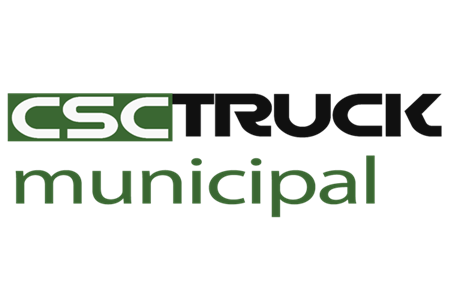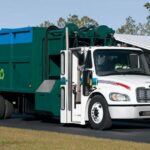When it comes to waste management, garbage trucks play a vital role in keeping our cities clean and ensuring proper disposal of trash. These massive vehicles traverse our streets day in and day out, collecting and transporting garbage to designated facilities. But have you ever wondered what fuels these mighty machines? In this article, we will explore the various types of fuels used by garbage trucks and the impact they have on the environment.

- Diesel Fuel: Traditionally, garbage trucks have been powered by diesel fuel. Diesel engines are known for their durability and high torque, making them suitable for heavy-duty applications like waste collection. Diesel fuel provides the necessary power to navigate through urban areas and handle large loads of waste efficiently. However, diesel-powered vehicles contribute to air pollution due to emissions of nitrogen oxides (NOx) and particulate matter (PM). These emissions harm air quality and human health, leading to respiratory issues and environmental damage.
- Natural Gas: In recent years, there has been a growing shift towards using natural gas as an alternative fuel for garbage trucks. Natural gas, which is primarily composed of methane, offers several advantages over diesel. Firstly, natural gas produces fewer emissions of sulfur dioxide (SO2), NOx, and PM. This reduction in emissions helps improve air quality and mitigate the negative impacts of waste management on the environment and public health. Secondly, natural gas is more abundant and has a lower price compared to diesel fuel, making it a cost-effective option for waste management companies.
- Biogas: Biogas is another fuel that holds promise for powering garbage trucks. It is produced through the anaerobic digestion of organic waste, such as food scraps and sewage, in specialized facilities called biogas plants. Biogas consists of methane and carbon dioxide primarily, with small amounts of other gases. Utilizing biogas as a fuel source for garbage trucks not only reduces greenhouse gas emissions but also provides a sustainable solution for managing organic waste. By diverting waste from landfills and harnessing the energy stored in it, biogas helps create a circular economy approach to waste management.
- Electric Power: The rise of electric vehicles has also made its way into the waste management sector. Electric garbage trucks are gaining traction as an eco-friendly alternative to diesel-powered vehicles. These trucks are powered by electricity stored in batteries, eliminating tailpipe emissions and reducing noise pollution. Electric garbage trucks offer significant environmental benefits, including zero exhaust emissions and reduced carbon footprint. However, there are challenges to overcome, such as limited battery range and the need for an extensive charging infrastructure. Nevertheless, advancements in battery technology and the increasing availability of charging stations are making electric garbage trucks a viable option for waste management fleets.
- Hydrogen Fuel Cell: Hydrogen fuel cell technology is another innovative solution being explored for garbage trucks. Fuel cell vehicles utilize hydrogen to produce electricity, which powers the vehicle’s motor. The only byproduct of this process is water vapor, making it a zero-emission technology. Hydrogen fuel cell garbage trucks have the potential to offer longer driving ranges and shorter refueling times compared to electric vehicles. However, the production and distribution of hydrogen present challenges, and the infrastructure required for widespread adoption is currently limited.
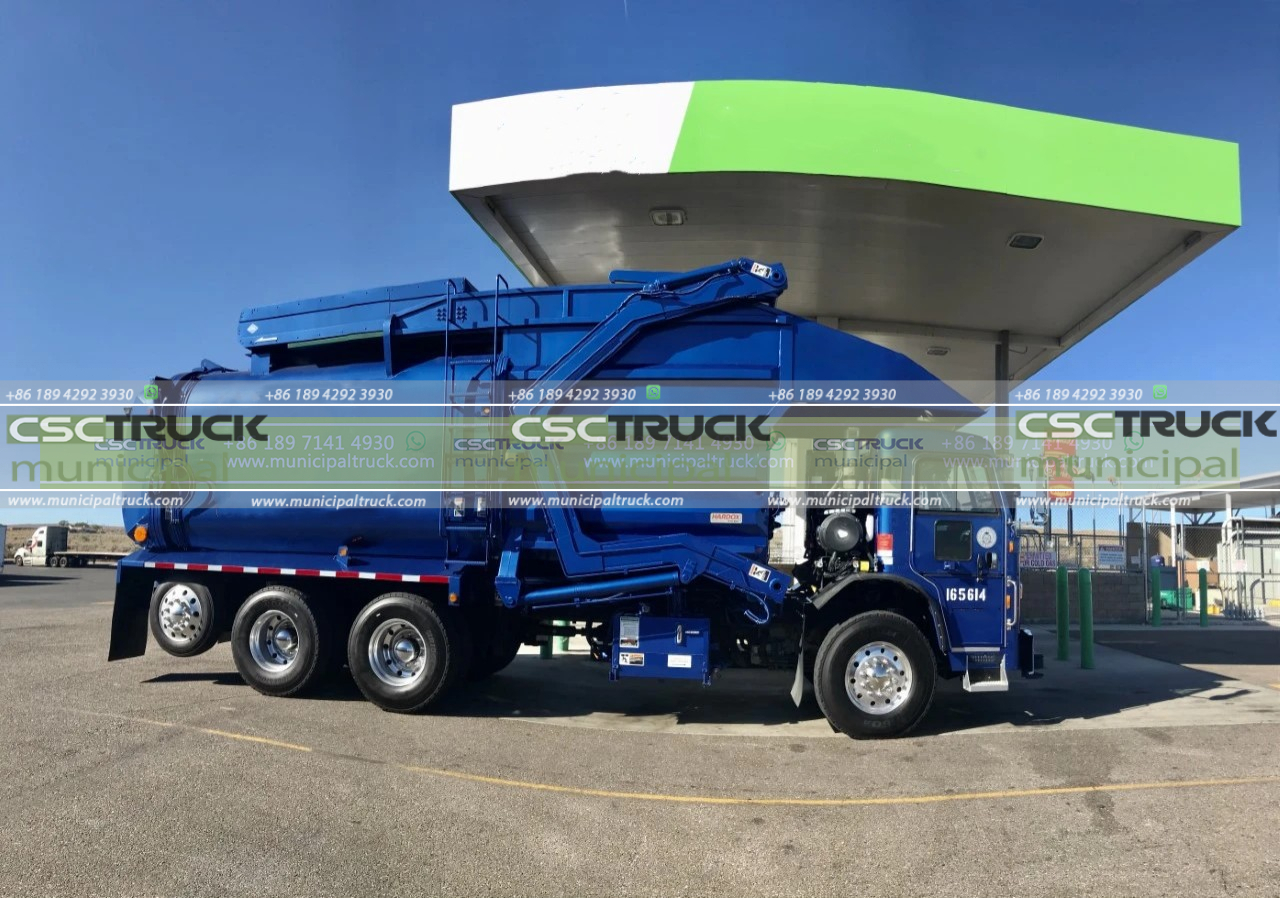
In conclusion, garbage trucks can utilize a variety of fuels, each with its own set of advantages and disadvantages. While diesel fuel has been the traditional choice due to its power and durability, alternative fuels like natural gas, biogas, electric power, and hydrogen fuel cells are gaining traction due to their reduced emissions and environmental benefits. As technology continues to evolve, we can expect to see a gradual transition towards cleaner and more sustainable fuel options for garbage trucks, contributing to a greener and healthier future for waste management.
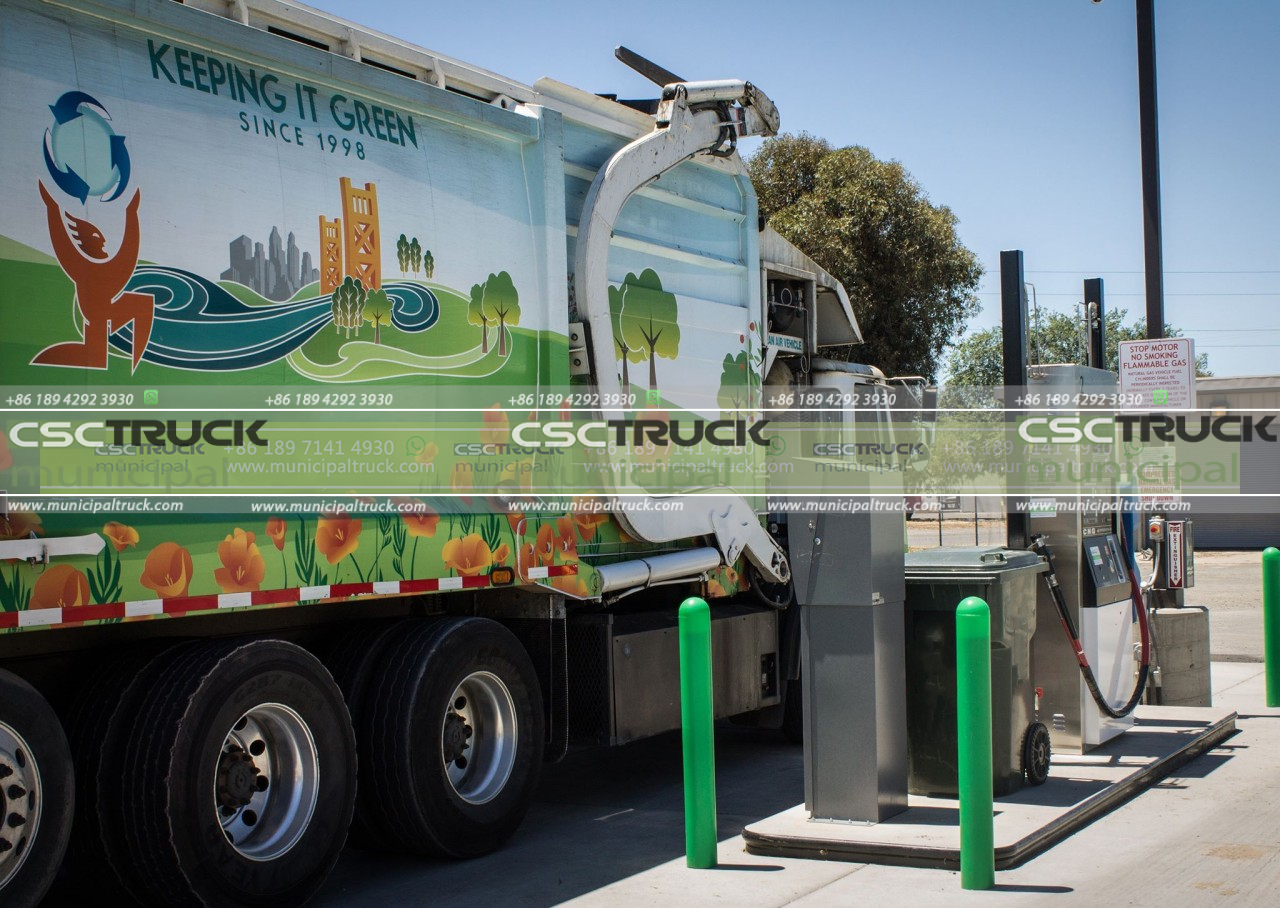
- Hybrid Technology: In addition to the aforementioned fuel options, garbage trucks can also incorporate hybrid technology for improved fuel efficiency and reduced emissions. Hybrid garbage trucks combine an internal combustion engine with an electric motor and battery system. The engine charges the battery while driving, and the electric motor provides supplemental power during acceleration or when the vehicle is operating at low speeds. This hybrid setup allows for lower fuel consumption and reduced emissions compared to traditional diesel-powered trucks. By harnessing the benefits of both internal combustion and electric power, hybrid garbage trucks offer a practical and environmentally conscious solution for waste management.

- Biofuels: Biofuels derived from renewable sources are gaining attention as a sustainable alternative for garbage trucks. These fuels are typically made from organic matter such as crops, agricultural residues, or waste cooking oil. Biofuels can be blended with or directly replace diesel fuel, reducing greenhouse gas emissions and dependence on fossil fuels. Biodiesel, for example, is a commonly used biofuel that can be used in existing diesel engines with minimal modifications. By utilizing biofuels, garbage trucks can significantly reduce their carbon footprint and contribute to a more sustainable waste management system.
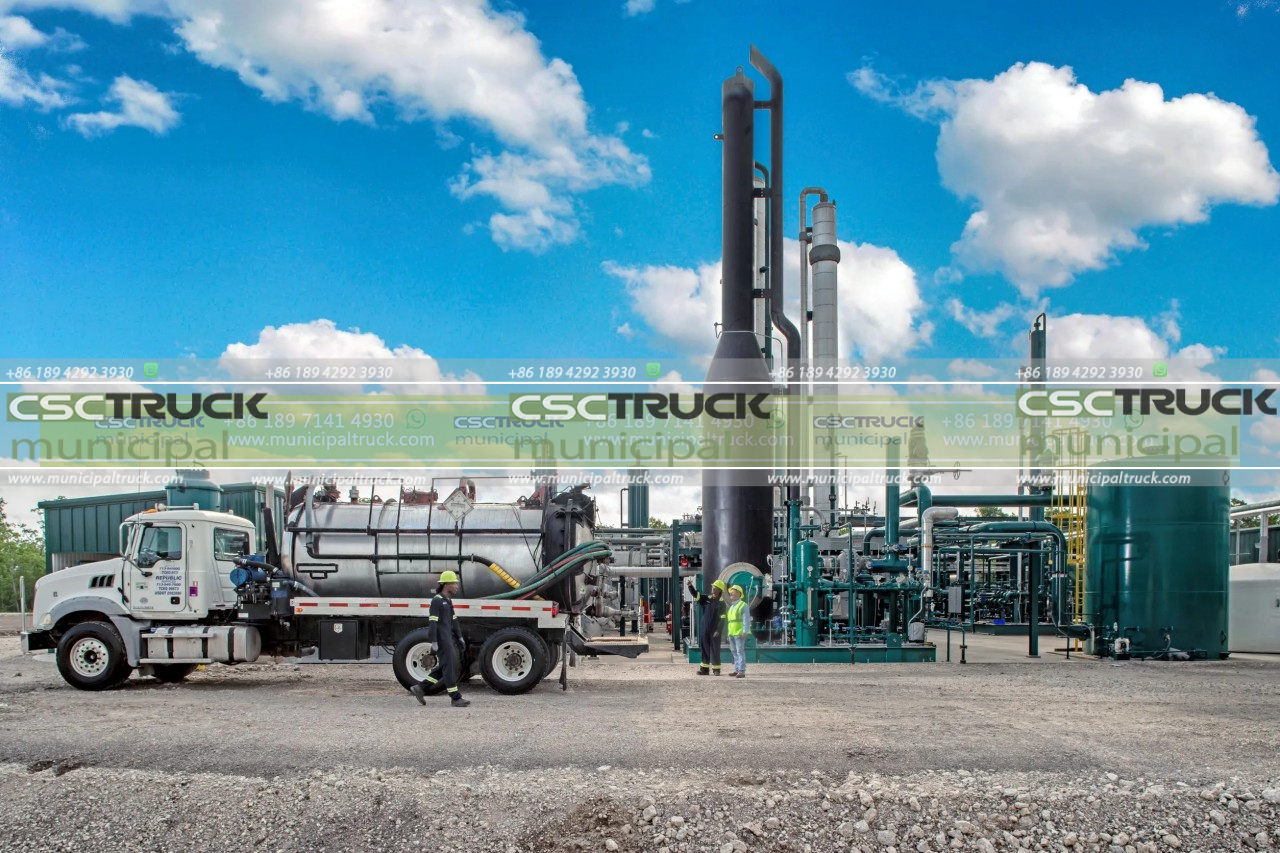
- Future Innovations: As technology advances, there are ongoing research and development efforts to explore even more sustainable and efficient fuel options for garbage trucks. One such area of exploration is the use of advanced biofuels, which are produced from non-food sources or algae. These biofuels offer even more significant greenhouse gas reductions and do not compete with food production. Additionally, researchers are investigating the use of renewable hydrogen produced through electrolysis using renewable energy sources. This would address the challenges associated with hydrogen fuel cell technology, providing a cleaner and more abundant fuel source for garbage trucks.
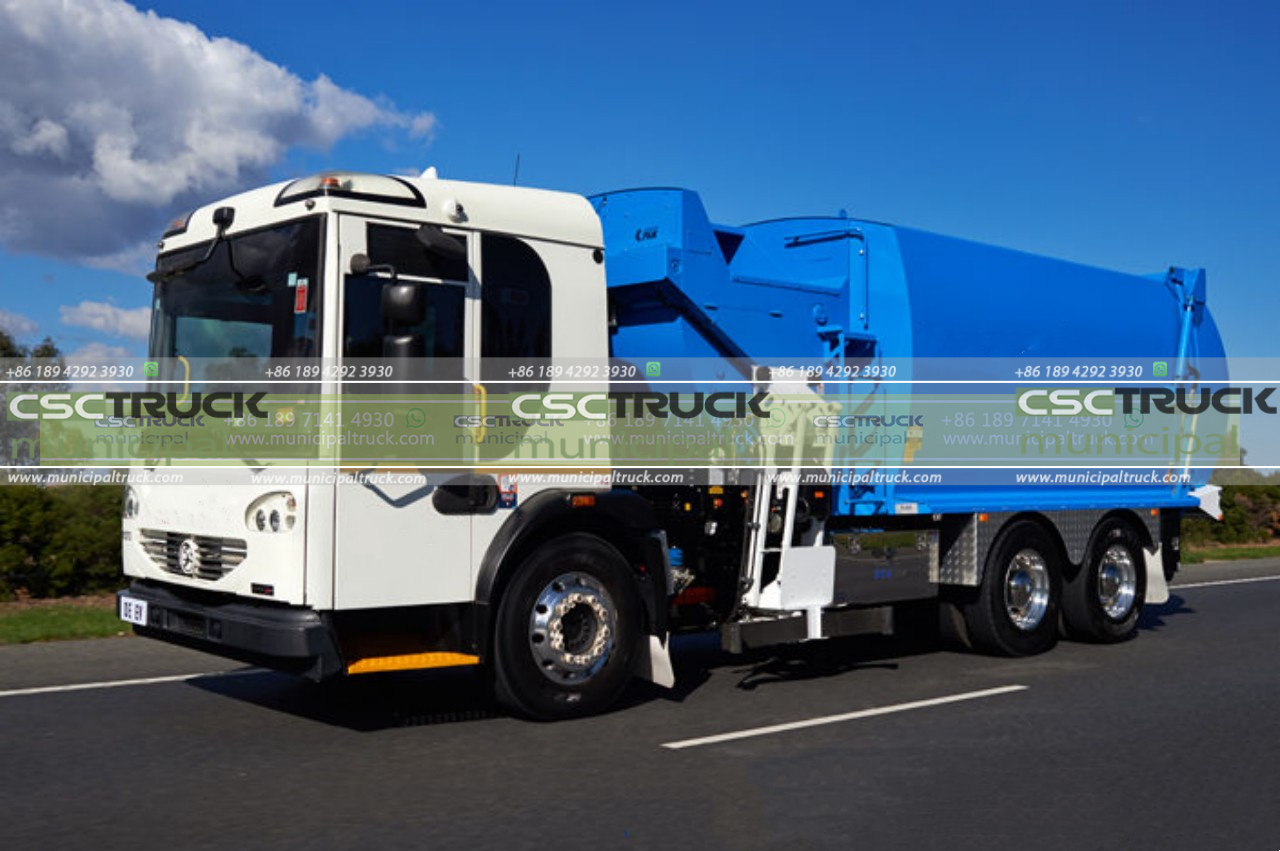
It is worth mentioning that the transition to alternative fuels for garbage trucks requires collaboration between waste management companies, government agencies, and fuel providers. Adequate infrastructure, including refueling stations and charging points, must be established to support the adoption of these fuels on a larger scale. Incentives and regulations can also play a crucial role in encouraging the use of cleaner fuels and technologies in the waste management industry.
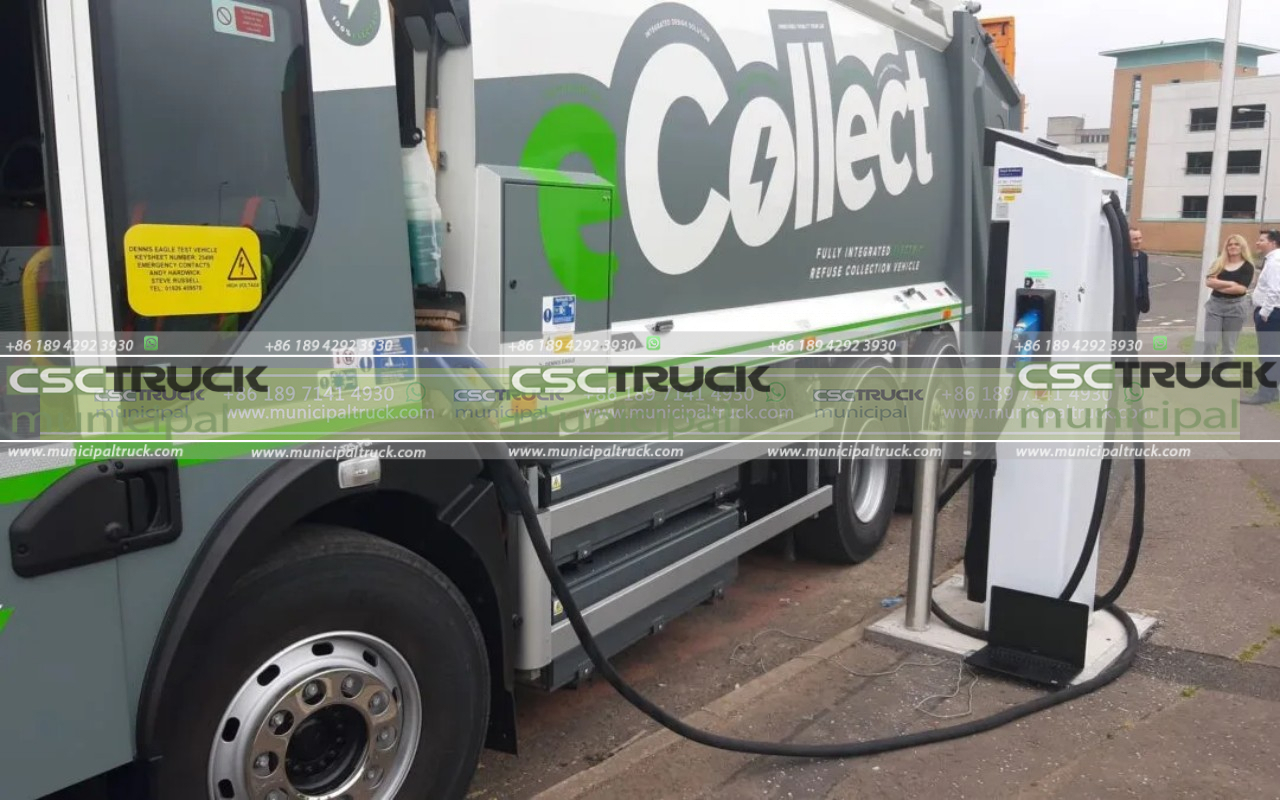
In conclusion, the fuel options for garbage trucks have expanded beyond traditional diesel fuel. From natural gas and biogas to electric power, hydrogen fuel cells, hybrid technology, and biofuels, there are various alternatives available that offer reduced emissions and improved sustainability. As we strive for a greener future, it is essential to invest in research and development, infrastructure, and policy measures that support the adoption of these alternative fuels. By embracing cleaner technologies, we can mitigate the environmental impact of waste management while ensuring efficient and reliable garbage truck operations.
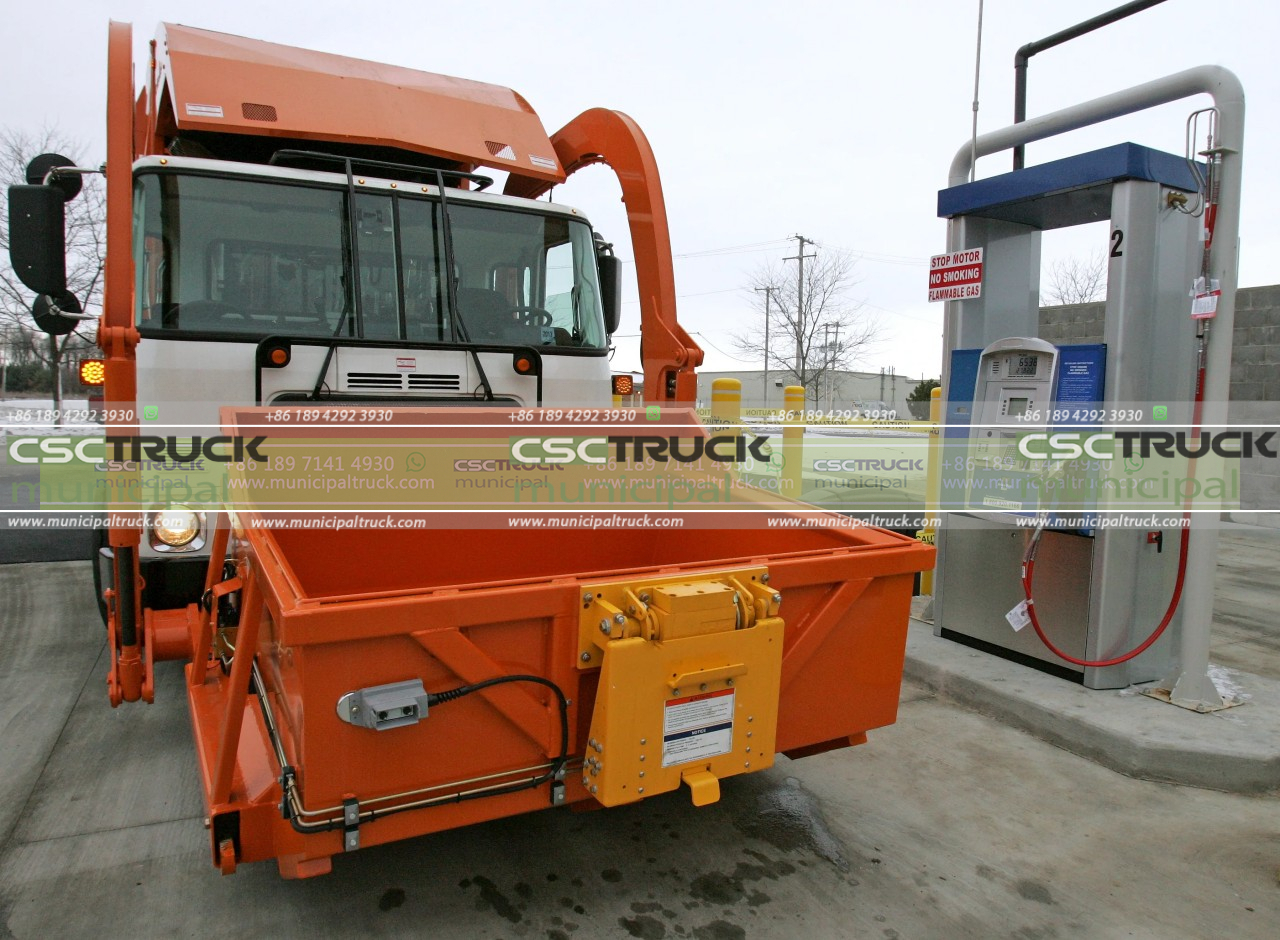
Contact us for this municipal truck or similar trucks: [email protected] Call us or What's APP us: +86 189 4292 3930
